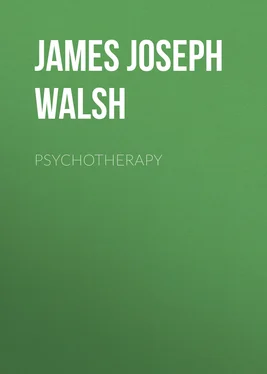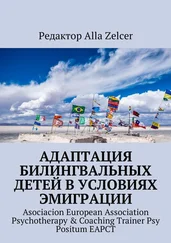James Walsh - Psychotherapy
Здесь есть возможность читать онлайн «James Walsh - Psychotherapy» — ознакомительный отрывок электронной книги совершенно бесплатно, а после прочтения отрывка купить полную версию. В некоторых случаях можно слушать аудио, скачать через торрент в формате fb2 и присутствует краткое содержание. Жанр: foreign_prose, psy_theraphy, foreign_edu, foreign_antique, на английском языке. Описание произведения, (предисловие) а так же отзывы посетителей доступны на портале библиотеки ЛибКат.
- Название:Psychotherapy
- Автор:
- Жанр:
- Год:неизвестен
- ISBN:нет данных
- Рейтинг книги:4 / 5. Голосов: 1
-
Избранное:Добавить в избранное
- Отзывы:
-
Ваша оценка:
- 80
- 1
- 2
- 3
- 4
- 5
Psychotherapy: краткое содержание, описание и аннотация
Предлагаем к чтению аннотацию, описание, краткое содержание или предисловие (зависит от того, что написал сам автор книги «Psychotherapy»). Если вы не нашли необходимую информацию о книге — напишите в комментариях, мы постараемся отыскать её.
Psychotherapy — читать онлайн ознакомительный отрывок
Ниже представлен текст книги, разбитый по страницам. Система сохранения места последней прочитанной страницы, позволяет с удобством читать онлайн бесплатно книгу «Psychotherapy», без необходимости каждый раз заново искать на чём Вы остановились. Поставьте закладку, и сможете в любой момент перейти на страницу, на которой закончили чтение.
Интервал:
Закладка:
The phenomena of faith-healing as the result of belief in the heavenly mission of special men, are as common now as at any time. Dr. Cutten in his "Three Thousand Years of Mental Healing" ( Scribners , 1911) has a chapter on "Healers of the Nineteenth Century," which shows how many phenomena of faith-healing can be studied in recent generations. Some of the men and the women who are mentioned secured wide reputations throughout our own country.
These faith-healing movements have particularly affected the New England portion of our population, and many of our most prominent healers have been born in the New England States. Wherever the new cults flourished, it is usually found that some of the most prominent members are descendants of the old New Englanders. It has been suggested that this is due to the gradual loss of belief in great religious truths by New Englanders, and a definite tendency toward reaction against this loss of the religious sense, which, as is usual with reactions, easily becomes exaggerated. From lack of belief they jump to excess of belief. Men without trust in Providence find the trials of life hard to bear, and they dread the development of physical ill so much that they exaggerate their feelings, or even create symptoms. Men are happier with the feeling that the supernatural powers surrounding them are interested in them directly and personally, and that somehow things, even in an incomprehensible world, are arranged, if not for the best, at least for such good as makes ills stepping-stones to new benefits. Whenever they are led far away from that thought, there is likely to be an exaggerated reaction back to it. The stronger minded apparently can get on without religion, but to the great mass of men a strong religious sense is needed to enable them to overcome the lack of self-confidence that is the root of dreads, doubts, difficulties of many kinds, and which is also the source of many symptoms as well as the cause of the exaggeration of many ailments.
As a rule, modern healers have been founders of new religions, or at least they have broken away from old-established sects, and have formed congregations for themselves. They have sprung up in every part of the country. East, North, South, West, and among all the differing nationalities of our population. We cannot console ourselves with the idea that they affect especially the foreigners, for the native-born people have proved to be quite as susceptible to them. These healers have, as a rule, abused the medical profession and the use of drugs, and have taught that disease, if it really existed at all, was from the devil: that what one needed, in order to secure relief from pains and ills, was faith in God—but always through them . Many of these men and women have probably been serious and earnest and have deceived themselves first. Most of them have undoubtedly been more or less disequilibrated, though they have practically all exhibited the power to accumulate large amounts of money from their followers. The people who have gone to them have not been the ignorant among our population, but particularly those who read the newspapers, and who look upon themselves as well informed. The intelligence of the disciples of these healers, as we ordinarily estimate intelligence, has been a little above the average, rather than below it.
Schlatter and Dowie. —Probably the most disillusioning phenomena with regard to the complacent idea that the diffusion of information prevents manifestations of superstition are stories of the healers Schlatter and Dowie. At the end of the nineteenth century both of them attracted widespread attention. Schlatter was probably not quite sane. He wandered through the deserted portions of the Southwest, hatless, unkempt, with clothing torn and without shoes. In July, 1895, he first attracted attention as a public healer in New Mexico. After a reputed forty-day fast he went to Denver, where people flocked from all parts of the country to him. Files of people formed—sometimes five or six thousand—to be touched, and healed, by him. His reputation was due to the cures that were reported. Dowie was another of these healers. Just at the beginning of the twentieth century he organized a great new church of his own, and announced himself as Elijah, the prophet, returned to life. Nearly 20,000 persons are claimed to have been healed during the first ten years of his healing career. Toward the end of his life he declared that he treated, and cured, over 50,000 a year. An abundance of crutches, canes and every form of surgical appliance for the ailing hung on the walls of his church at Zion City, Chicago, left by people who, having been healed, had no further use for them.
GENERAL PSYCHOTHERAPEUTICS
SECTION II
GENERAL CONSIDERATIONS
CHAPTER I
INFLUENCE OF MIND ON BODY
The power of mind over body for the relief of symptoms has been recognized, not only by physicians, but by the generality of men at all times. Every one has had experiences of aches, or actual pains, or discomfort quite annoying while one is alone, but that disappear while in pleasant company or occupied in some absorbing occupation. Many a headache that was painful enough to disturb us seriously while we tried to apply ourselves to something of little interest, and became almost unbearable if we tried to do something disagreeable, and actually intolerable if the occupation of the moment was a drudgery, disappeared, at least for the time, when we turned to a pleasant game of cards or indulged in some other favorite pastime. Our relief was not, however, from an imaginary ill, for the symptoms usually reasserted themselves when we got through with the pleasant occupation, showing that they have been there all the time and that we have only turned our mind away from them, and hence have ceased to feel them. This is so familiar it seems almost too commonplace to repeat, yet it constitutes the special phenomenon that lies at the base of psychotherapeutics, or the mental healing of physical ills.
It is not alone the slighter, more or less negligible aches or pains, nor the vague discomforts that thus disappear when our attention is occupied, but even quite severe and otherwise unbearable pain may be modified to a great extent. A toothache that is bearable, though it nags at us constantly and never lets us forget its presence while we are occupied with many other things during the evening, may become a positive torture when we get to bed. This is not only because of physical conditions modifying the pain, for there seems no doubt that the warmth induced by the preliminaries for sleep and the bed-covering have a tendency to increase congestion, but it is mainly because as we doze off we are able, less and less, to inhibit our attention, or divert it from the pain that is present, and so this is emphasized until we have to do something for it or lose hours of sleep. This lack of inhibition, which characterizes the dozing hours, represents the state of mind in which people are who have no interest in their occupations, and who have ceased to find recreation in the ordinary pleasures of life, when pain of any kind comes to them.
Cabanis, at the beginning of the nineteenth century, under the title of "The Influence of the Moral on the Physical," discusses what we would now call mental influence on the body. He says:
The great influence of what one may call the moral or mental on what may be called the physical is an incontestible fact. Examples without end confirm it every day. Every man capable of making observations finds proofs of it thousands of times in himself. Many physiologists and psychologists as well as moralists, have collected the evidence that brings out clearly this power of the intellectual operations and emotions on the different organs and the diverse functions of the living body. All of us could add new illustrations to these collections. Men who are rude and credulous talk of the effect of the imagination, and if they are not themselves its playthings and its victims, at least they know how to observe its effects In others.
Читать дальшеИнтервал:
Закладка:
Похожие книги на «Psychotherapy»
Представляем Вашему вниманию похожие книги на «Psychotherapy» списком для выбора. Мы отобрали схожую по названию и смыслу литературу в надежде предоставить читателям больше вариантов отыскать новые, интересные, ещё непрочитанные произведения.
Обсуждение, отзывы о книге «Psychotherapy» и просто собственные мнения читателей. Оставьте ваши комментарии, напишите, что Вы думаете о произведении, его смысле или главных героях. Укажите что конкретно понравилось, а что нет, и почему Вы так считаете.












